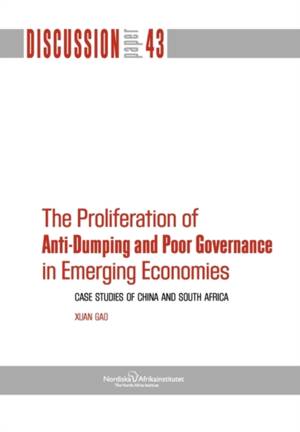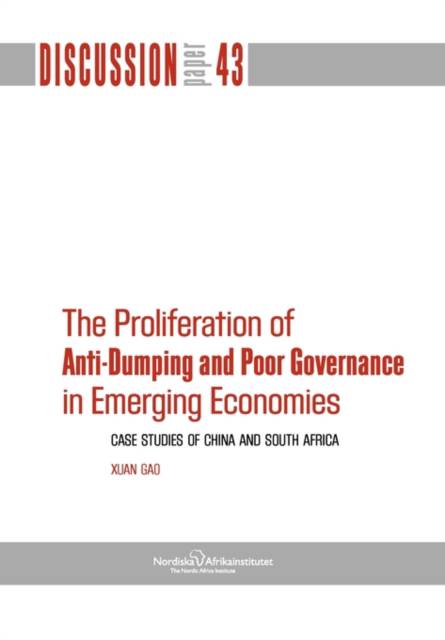
- Afhalen na 1 uur in een winkel met voorraad
- Gratis thuislevering in België vanaf € 30
- Ruim aanbod met 7 miljoen producten
- Afhalen na 1 uur in een winkel met voorraad
- Gratis thuislevering in België vanaf € 30
- Ruim aanbod met 7 miljoen producten
Zoeken
The Proliferation of Anti-Dumping and Poor Governance in Emerging Economies
Xuan Gao
€ 18,95
+ 37 punten
Omschrijving
Through examination of the alleged rationale of the anti-dumping (AD) instrument, this paper argues that it has little to do with fairness or with level playing fields. AD trade protection enjoys broad political support merely because its convoluted technical complexities prevent all but a few insiders and experts from understanding the reality that underlies the rhetoric, thus enabling inefficient but well-organised domestic producers to safely utilise the instrument to protect themselves from foreign competition, at times in collusion with foreign exporters and with the national AD authorities as a broker. While the best option for AD reform, i.e., complete removal, is not practically available, this paper proposes improving AD's procedural institutions by enhancing the quality of public governance in the formulation of AD decisions by national authorities. It further examines the AD practices and laws of China and South Africa, arguing that poor governance in emerging economies contributes to their prolific use of AD, usually disproportionate to their small share of world imports. These economies already maintain higher tariff barriers than industrial countries, so that without effective steps to ensure better governance to restrain the arbitrary and proliferating use of AD, they may lose out significantly on the gains from the trade liberalisation for which they have been striving for decades. Xuan Gao is a PhD candidate under Professor Asif H. Qureshi's supervision, at the School of Law, University of Manchester. He is also an assistant editor for Manchester Journal of International Economic Law, and for Routledge Publishing Group on the book project "Critical Concepts in International Economic Law". His main field of research interest is International Trade Law and public governance.
Specificaties
Betrokkenen
- Auteur(s):
- Uitgeverij:
Inhoud
- Aantal bladzijden:
- 48
- Taal:
- Engels
- Reeks:
- Reeksnummer:
- nr. 43
Eigenschappen
- Productcode (EAN):
- 9789171066442
- Verschijningsdatum:
- 15/06/2009
- Uitvoering:
- Paperback
- Formaat:
- Trade paperback (VS)
- Afmetingen:
- 170 mm x 244 mm
- Gewicht:
- 90 g

Alleen bij Standaard Boekhandel
+ 37 punten op je klantenkaart van Standaard Boekhandel
Beoordelingen
We publiceren alleen reviews die voldoen aan de voorwaarden voor reviews. Bekijk onze voorwaarden voor reviews.











